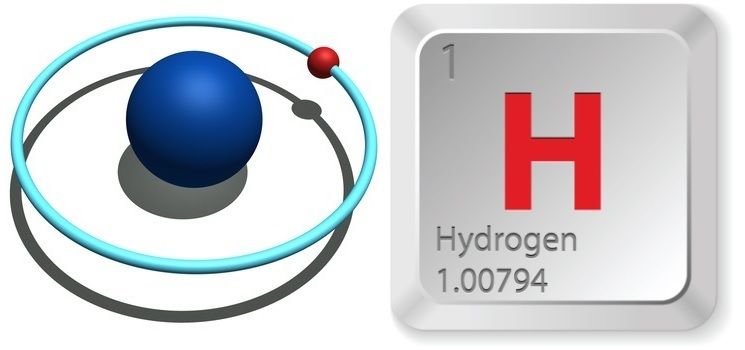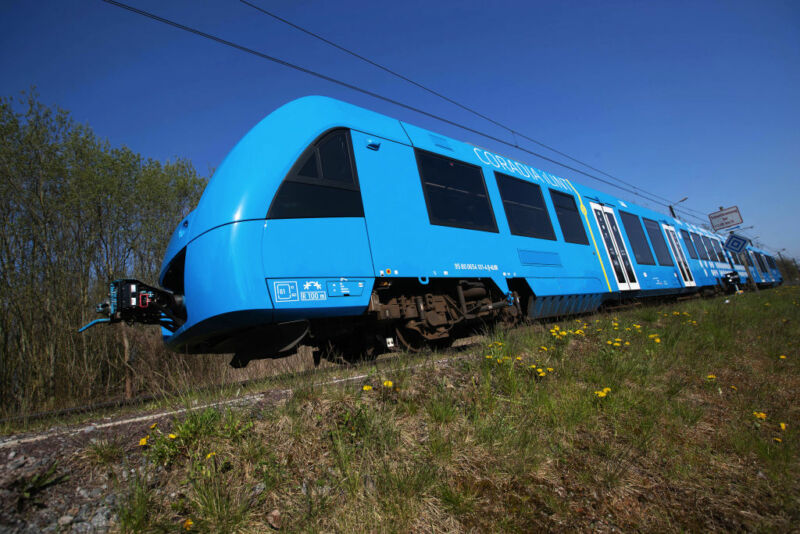If you were paying attention at the start of this century, you might remember the phrase "hydrogen economy," which was shorthand for George W. Bush's single, abortive attempt to take climate change seriously. At the time, hydrogen was supposed to be a fuel for vehicular transport, an idea that still hasn't really caught on.
But hydrogen appears to be enjoying a revival of sorts, appearing in the climate plans of nations like the UK and Netherlands. The US government is investing in research on ways to produce hydrogen more cheaply. Are there reasons to think hydrogen power might be for real this time?
A new report by research service BloombergNEF suggests that hydrogen is set for growth—but not in transport. And the growth has some aspects that don't actually make sense given the current economics.
A gas that’s not really for cars
There are currently two primary ways of producing hydrogen. One involves stripping it from a hydrocarbon such as the methane in natural gas. CO2 is a byproduct of these reactions, and at present, it is typically just released into the atmosphere, so the process is anything but carbon neutral. That carbon can be captured and stored relatively easily, however, so the process could be clean if the capture and storage are done with renewable or nuclear power. The same caveat applies to producing hydrogen by water electrolysis: It needs to be done with low-carbon power to make sense for climate goals.
Until recently, very few countries have had enough renewables installed to regularly produce an excess of carbon-free electricity to power climate-friendly hydrogen production. That situation is now starting to change, so governments are beginning to include hydrogen in their climate plans.
But something else has changed since the early talk of a hydrogen economy: Battery prices have plunged, and widespread electric vehicle use is a viable option for decarbonizing a lot of transportation. There are still some types of vehicles, like trains, for which batteries aren't a great option and hydrogen could play a role. But looking out to the end of the decade, BloombergNEF sees transportation generating only about 10 percent of the total demand.
Instead, BloombergNEF foresees countries using hydrogen as part of a larger integrated plan to reach national climate goals. If things go according to these plans, carbon-neutral hydrogen will be used in segments of the economy that are difficult to decarbonize otherwise.
One option for hydrogen is to supplement renewable power during periods of low productivity. BloombergNEF suggests that fossil fuels will outcompete hydrogen economically unless there's a price on carbon high enough to drive capturing the emissions of fossil fuel plants. Batteries will also be cheaper for shorter periods (three hours or less). So while renewal power is expected to be a major source of demand, it will be heavily reliant on carbon pricing to make economic sense.
Perhaps more promising are industrial uses like oil refining and ammonia production, which already use a lot of hydrogen produced from fossil fuels. Some additional processes, like metal production, don't currently use hydrogen but could switch to it to decarbonize. Again, making hydrogen attractive at current hydrogen prices will require a price on carbon. Canada and EU members will likely implement these practices first, and EU countries have some of the most concrete roadmaps for hydrogen use.
Volume production
For many countries, economical hydrogen production depends on policies that aren't yet in place. However, BloombergNEF foresees a short-term boom in our ability to produce it. Based on announced plans, manufacturers of hydrogen-producing hardware will produce an additional 10 GW of hardware annually by the end of next year. (Hydrogen-producing equipment is rated based on the electricity it consumes.) In contrast, Bloomberg predicts a demand of under 2 GW of hardware at that time.
Some of the production expansion appears to be a response to China's announced plan to be carbon neutral by 2060. While China hasn't detailed its roadmap to get there, industries in the country seem to be acting in anticipation of what the pathway might look like. BloombergNEF also acknowledges that the plans of companies in China are often opaque, and they'll sometimes announce facility openings only as they are happening. So there's a chance that Bloomberg is underestimating demand.
Still (and this is our analysis, not BloombergNEF's), the situation echoes what happened with solar panels. China had invested in production capacity that outstripped the present demand, leading to low-priced exports that helped stimulate demand in a number of other countries and set off a cycle of price drops and demand expansion.
This could potentially work for hydrogen-production equipment as well, but there's a key difference here. While solar panels help offset carbon emissions whenever they're put to use, hydrogen production hardware will do so only when it's paired with renewable or nuclear power. And it's unlikely that there will be a lot of excess power in three years after all that equipment production is online. So while the expected overproduction could stimulate hydrogen production, it could also be meaningless before the end of the decade, when other pieces of policy are in place.



3175x175(CURRENT).thumb.jpg.b05acc060982b36f5891ba728e6d953c.jpg)


Recommended Comments
There are no comments to display.
Join the conversation
You can post now and register later. If you have an account, sign in now to post with your account.
Note: Your post will require moderator approval before it will be visible.